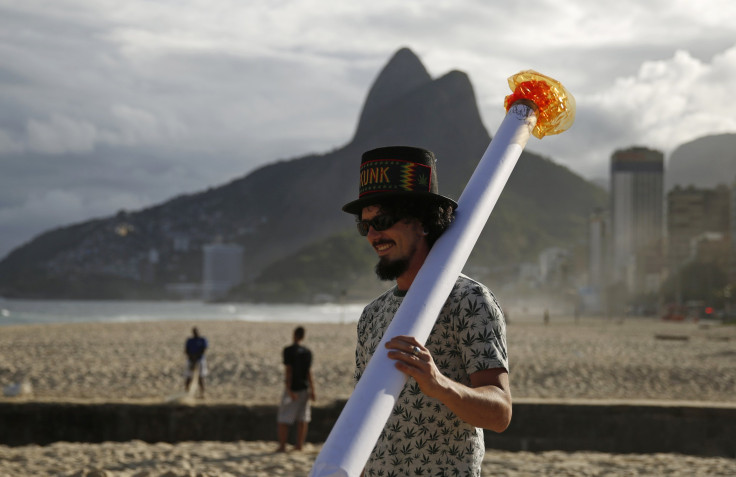
Do Brazilian citizens have the right to consume drugs? That’s the question being considered by the Brazil's highest court in a case that has challenged the constitutionality of laws punishing drug consumption. Possession of marijuana, cocaine and other drugs is a crime in Brazil, even small amounts. In 2009, a man who was already in prison on a petty crime and an illegal firearms conviction was caught with a small quantity of marijuana, convicted and punished with an additional sentence.
Robbery is a no-brainer crime, but for Brazilian judges the marijuana posession don't make as much sense. Arguments for the decriminalization of all drugs, not just marijuana were spearheaded this week by two off the 11 judges on the bench. In signaling his vote, judge Luís Roberto Barroso compared criminalization of personal drug use to a dictatorship.
“The state has every right to combat the use [of drugs], to mount media campaigns, to create warnings, but to punish [drug use] with imprisonment is a form of authoritarianism that prevents the individual from making individual choices,” Barroso said, according to G1.
Those opinions could significantly change the way that Brazil, the second-largest country in the Western Hemisphere, treats the problem of illicit drugs. If adopted as a majority opinion, Barroso’s ruling would decriminalize possession for personal use of marijuana, cocaine, heroin and other drugs. The government would still be allowed to punish possession related to drug trafficking.
Barroso cited other countries that have experimented the the legalization of marijuana and other drugs in recent years, according to RedeBrazil. He explicitly cited the U.S., a leader in the global war on drugs that has not interfered with state-level efforts to legalize pot, as well as Brazil’s neighbor Uruguay and it’s colonial mother country Portugal -- where heroin use fell 50 percent after drugs were decriminalized.
Judge Luiz Edson Fachin joined Barroso, voting to overturn the marijuana conviction. While he acknowledged the dangers of illegal drugs, Fachin argued that drug users were victims, not crimminals.
“Those dependant on drugs are victims and not the seed of the crime [and] should be received as sick people,” Fachin said, according to G1.
Fachin also pointed out that the country’s existing attempts at prohibition had failed.
“To insist in a public policy that has not worked for so many decades is to close one’s eyes to reality,” he said.
The judges’ motions to decriminalize drugs go against popular opinion. The country’s Attorney General has reportedly criticized the court, reportedly saying that people don’t have “constitutional right to get high.” Brazilians are far from reaching a consensus on the issue.
However, Fachin and Barroso’s arguments from the bench are music to the ears of legalization advocates and human rights groups around the world. Maria Laura Canineu, Director of Human Rights Watch Brazil welcomed the ruling.
“Brazil can and should deter people from harmful use of drugs, just as it has non-penal public policies against smoking or alcohol abuse,” she said in a statement. “What it should not do is punish drug users through the criminal law.”
On Thursday, the judges decided to table their final verdict, citing the need for further discussion of how to define “personal use.” Some have proposed specific quantities -- 25 grams of marijuana and 6 plants, for example -- while argue that the legislature should determine what quantities.
In any case, decriminalization is getting serious attention in Brazil. A ruling in the case is expected next week.
© 2025 Latin Times. All rights reserved. Do not reproduce without permission.




